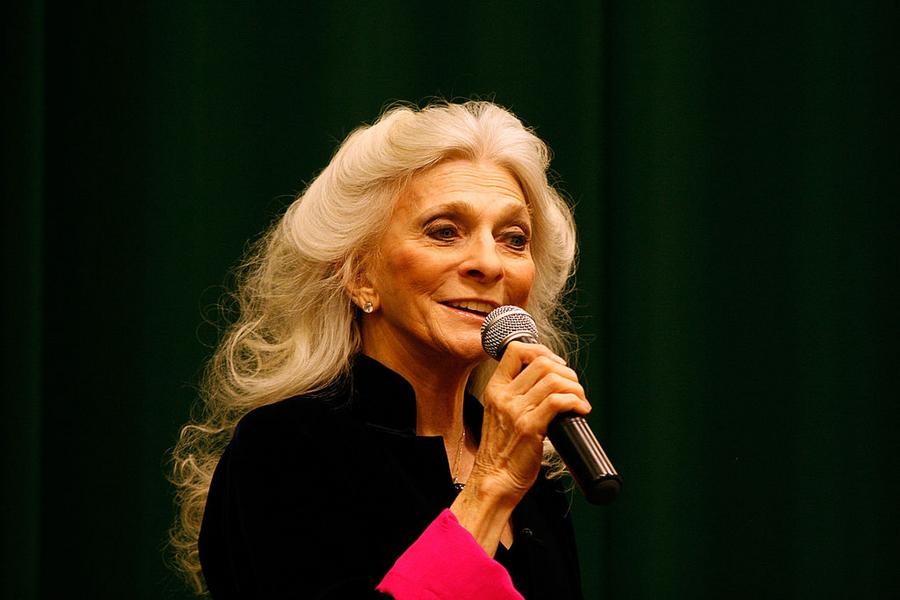What is Judy Collins's Net Worth?
Judy Collins is an American singer-songwriter and musician who has a net worth of $6 million. Judy Collins' career spans seven decades. She is known for her hit recordings of such songs as "In My Life," "Both Sides, Now," "Someday Soon," "Chelsea Morning," "Amazing Grace," and "Send in the Clowns." Among her other endeavors, Collins co-directed the Academy Award-nominated 1974 documentary film "Antonia: A Portrait of the Woman."
Early Life
Judy Collins was born on May 1, 1939 in Seattle, Washington as the eldest of five siblings. Her father, Chuck, was a blind singer, pianist, and radio show host. When he took a job in Denver, Colorado in 1949, the whole family moved there. Collins grew up listening to her father's music, which came from Irish folk tradition. She studied classical piano under Antonia Brico, and at the age of 13 performed publicly for the first time. In the late 1950s, inspired by the folk music revival, Collins began playing the guitar.
Career Beginnings
After graduating from high school, Collins performed as a folk artist at Michael's Pub in Boulder, Colorado and at Exodus in Denver. She also performed for the campus radio station at the University of Connecticut, where her husband Peter Taylor taught. In the early 1960s, Collins moved to Greenwich Village, where she continued playing in clubs. She soon signed with Elektra Records, and released her debut album, "A Maid of Constant Sorrow," in 1961. Originally, Collins sang and recorded traditional folk songs that were written by other artists, such as Phil Ochs and Bob Dylan.

(Photo by Andy Kropa/Getty Images)
Commercial Success, 1966-1979
Collins had her commercial breakthrough in 1966 with her fifth studio album, "In My Life." A significant departure from the guitar-based folk music she had usually recorded, the album included renditions of songs by the Beatles, Jacques Brel, and Randy Newman, among others. It peaked at number 46 on the Billboard 200 and became the first album by Collins to earn a Gold certification by the RIAA. She had an even bigger hit with her next album, 1967's "Wildflowers," which reached number five on the Billboard 200 and spawned her Grammy Award-winning cover of the Joni Mitchell song "Both Sides, Now." It was also on "Wildflowers" that Collins began recording her own compositions, such as "Albatross." She continued her success with her 1968 album "Who Knows Where the Time Goes," which peaked at number 29 on the Billboard 200. That was followed in 1969 by "Recollections," which also peaked at number 29. It included Collins's cover of the Pete Seeger song "Turn! Turn! Turn!"
In 1970, Collins released her eighth studio album, "Whales & Nightingales." It included her hit version of "Amazing Grace," which charted in the US, UK, Australia, and New Zealand. Collins went on to release the live album "Living" in 1971 and the compilation album "Colors of the Day: The Best of Judy Collins" in 1972. In 1973, she released her ninth studio album, "True Stories and Other Dreams." Collins had her greatest commercial success with her tenth studio album, "Judith," which was released in 1975. The album included the biggest hit single of her career, her cover of Stephen Sondheim's "Send in the Clowns." With her next album, 1976's "Bread and Roses," Collins began increasingly foregrounding political themes in her music. She subsequently released the compilation album "So Early in the Spring… The First 15 Years" in 1977. Returning to the more pop-driven sound of "Judith," Collins released her twelfth studio album, "Hard Times for Lovers," in 1979.

Astrid Stawiarz/Getty Images
Further Recording Career
Collins began experiencing declining commercial success by the 1980s. After releasing the commercially underwhelming albums "Running for My Life" (1980) and "Times of Our Lives" (1982), she ended her 24-year association with Elektra Records. Collins went on to release the album "Amazing Grace" in 1985 on the British record label Telstar. Later in the decade, she released the live album "Sanity and Grace" and the collaborative album "Innervoices," which she recorded with clarinetist Richard Stoltzman. Collins's albums in the 1990s included "Fires of Eden," "Judy Sings Dylan… Just Like a Woman," "Shameless," and "Classing Broadway."
In the '00s, Collins released such albums as "Portrait of an American Girl" and "Judy Collins Sings Lennon and McCartney." Later, in 2015, she released her first charting album in over two decades, "Strangers Again." It includes duets with such artists as Willie Nelson, Glen Hansard, Jackson Browne, and Ari Hest. Collins collaborated with Hest again on the 2016 album "Silver Skies Blue," which received a Grammy Award nomination for Best Folk Album. The following year, Collins collaborated with her longtime friend and former lover Stephen Stills on the album "Everybody Knows." She subsequently collaborated with Norwegian musician Jonas Fjeld on the 2019 album "Winter Stories." In 2022, Collins released "Spellbound," her first studio album composed entirely of original material.
Other Works
Among her other works, Collins co-directed the 1974 documentary film "Antonia: A Portrait of the Woman" with Jill Godmilow. Focused on conductor and pianist Antonia Brico, who taught Collins classical piano in her youth, the film earned an Academy Award nomination for Best Documentary Feature.
Collins has also published many books, including the novel "Shameless" and the memoirs "Trust Your Heart," "Singing Lessons: A Memoir of Love, Loss, Hope and Healing," and "Sweet Judy Blue Eyes: My Life in Music." Many of her memoirs deal with her struggles with alcoholism, depression, and trauma.
Personal Life
Collins married her first husband, Peter Taylor, in 1958. They had a son named Clark, and divorced in 1965. In 1992, Clark died by suicide. Collins didn't marry again until 1996, when she wed her longtime boyfriend, Louis Nelson, an industrial designer.
Collins struggled for many years with alcoholism and depression. She also suffered from bulimia nervosa after she quit smoking in the 1970s. In 1978, Collins joined a rehabilitation program in Pennsylvania and became sober.










 Bengali (BD) ·
Bengali (BD) ·  English (US) ·
English (US) ·